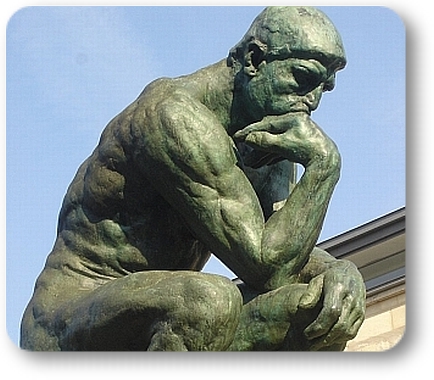Africa: Short of Thinkers?

 |
| Africa needs solid thinking Photo courtesy |
The first thing that struck me as I looked through the report is the large disparity in the number of think tanks in Africa compared to other parts of the world. Out of the 6305 think tanks ranked, 1815 are located in the United States while only 503 are located in Africa. Out of the 503 think tanks located in Africa, only 45 are located in Africa’s most populous country, Nigeria.
Brookings Institution and Chatham House lead the list as the number one global think tank and the non-US based think tank respectively.Among the top African think tanks, South African Institute for International Affairs based in Johannesburg leads. Out of the three others that follow, only the Center for the Development of Social Science Research (CODESRIA) is based in Dakar Senegal. The other two are based in one city in South Africa or the other. Generally speaking, the majority of Africa think tanks are based in Cape Town, Dakar and Nairobi. The two Nigerian think tanks that make the list of top 25 are Nigerian Institute for International Affairs (NIIA) (number 13) and the new Center for Study of Economies in Africa (number 18).
Disturbed by this report, I had to check up the definition of a 'think tank.' One publication defined it as “a public policy research, analysis and engagement institution that generates policy oriented research analysis and advises on domestic and international issues that enable policy makers and public make informed decisions on public policy issues.”
Is this report a reflection of this sort of thinking going on in African capitals? Many Nigerian thinkers both at home in the Diasporas are indeed making a difference in many parts of the world. However the quantum of thinking feeding into our policy in Africa may be less than is desirable. Most of our policy positions are not thought through. This is not because we lack thinkers, but due to the fact very little independent, objective and reflective thinking has been allowed to flourish in many Africa countries. Governance is a serious business and must not be starved the benefit of critical thinking.
Some years ago, some good friends of mine started the National Think Tank. It took off with a lot of promise and received overwhelming support from Nigerians worldwide- an indication of willingness to give intellectual support (which Nigerians have in abundance) to the government of the day to refine policy direction for effectiveness and sustainability. Many Nigerians are either tired or frustrated with the status quo and will be excited at any opportunity to make a contribution. A vibrant think tank may be the starting point. I have not heard a lot about the National Think Tank (NTT) lately and my hope is that it does not go the way many good things go in our dear country.
Let us take a look at the first Nigerian think tank that managed to make it to number 13 on the list of the top 25 African think tanks. Very little is heard about the Nigerian Institute for International Affairs (NIIA) these days except that is usually a choice venue for launch of auto- biographies of spent politicians. NIIA is one of the government agencies that remained in Lagos while the whole instrument of government moved to Abuja. I looked at their old fashioned website only to discover that the organization expects to be “an intellectual base upon which decision makers rely for informed opinion and expert advice in order to make rational choices between contending policy decisions.” With NIIA located in Lagos, I doubt very strongly how it expects to implement this vision effectively. I even doubt how many public officials in Abuja know about NIIA or refer it for policy decisions.
In Washington DC for example, every single government policy is subjected to several debates, research, and analysis before government adopts it. All arms of government open their door in principle to the contribution and critique of think tanks. These think tanks continue to produce independent reports which may not necessarily agree with the government position but are taken seriously, a lesson for democracies which are not receptive to dissenting voices.
We need to do more thinking in Africa. Better still, we need to do more thinking directed to Africa by Africans. This disparity is not good for the continent. It is unacceptable!
By Uche Igwe.
The author is a Woodrow Wilson Policy Scholar and Visiting Scholar at Africa Program, the Paul H. Nitze School of Advanced International Studies (SAIS), Johns Hopkins University Washington DC USA.
